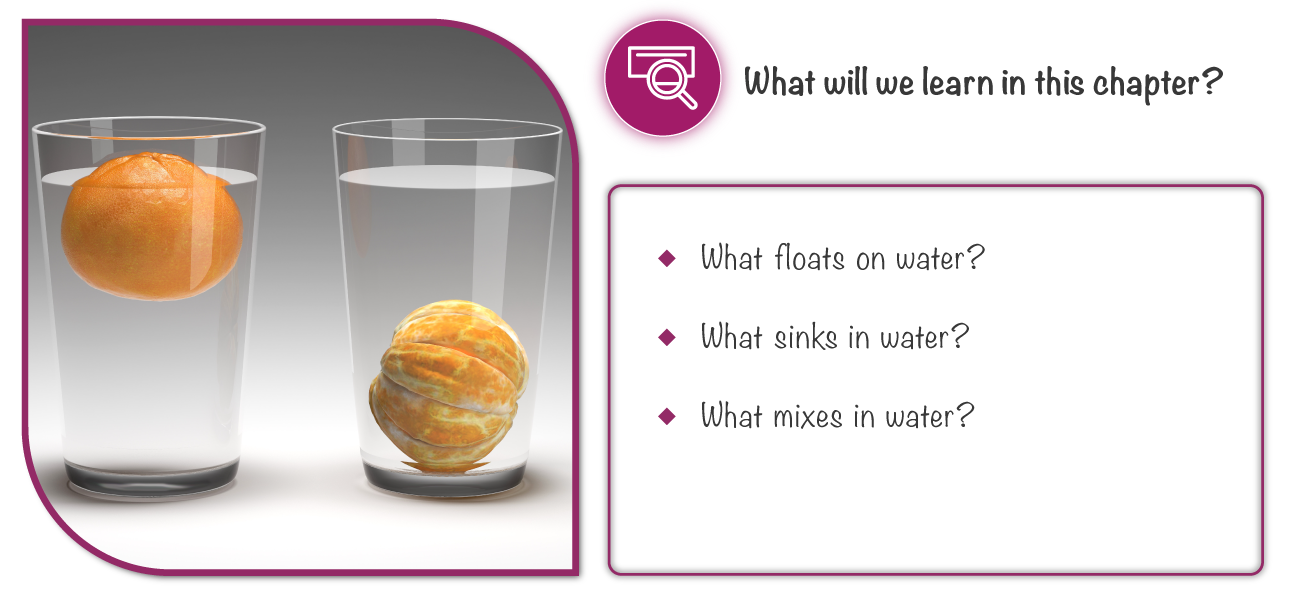

Introduction
You may have seen instances where objects sink in or float on water. What determines which object will sink or float?
First, the density of a substance determines whether it will sink in or float on water.
All substances come in three forms - solids, liquids and gases.
All substances are made up of molecules. Some molecules are heavier than others. Some molecules are denser than others.
The molecules of the solids are more densely and compactly packed than the molecules of a liquid or a gas.
Look at the picture, mention which state of matter is the substance.
What flows on water
How densely packed and heavy a substance is helps us to know whether a substance will sink or float. If the substance is denser than the liquid, then it will sink and if it is less dense, then the liquid it will float.
Take a piece of wood and cork of the same size. Put both pieces in water and see whether they will sink or float.
Cork floats on water while the other piece of wood sinks. You will notice that the cork a type of wood, is lighter than the other woods. Unlike other woods, the cork is loosely packed, and it is porous. There is air in its holes which makes the cork light. As it is sparsely packed with air in it, the cork is less dense. This helps the cork to float. While the other wood is dense and heavy and so it sinks.

Will cork float on all liquids? Whether cork will float on any liquid depends on not just the density of cork but also the density of that liquid. Water is denser than cork, but the wood piece was denser than water. That is why cork floated, and the wood sank.
Just like solids, not all liquids have the same density. Pour a teaspoon of coloured oil like mustard oil in a glass of water. You will see that the oil floats on the surface of the water. This is because oil is lighter and less dense than water. This is also the reason why the cream floats on the surface of the milk.

All objects exert a force on each other. When we keep an object in the water, the water exerts a force called buoyant force on the object.
The buoyant force acts in the upward direction, against the force of gravity, so it makes an object feel lighter.

Archimedes' Principle :
This principle states that the buoyant force on an object is equal to the weight of the fluid displaced by the object.
This means that the more fluid an object displaces, the more buoyant force it will have.
The more surface area an object occupies, the more water it will displace.
This is why it is easy to float in water when you are lying down on your back. Then you take up more surface area,displace more water, and create a greater buoyant force.


